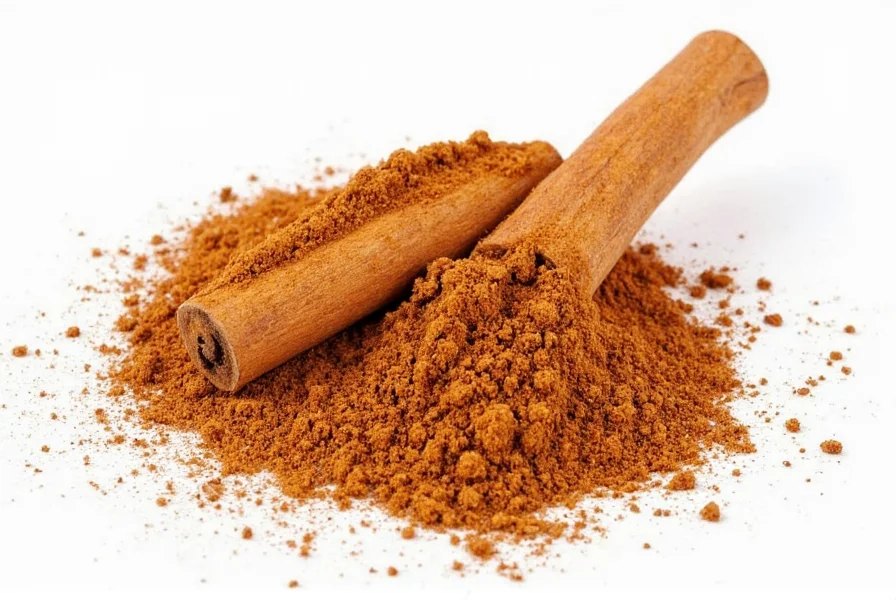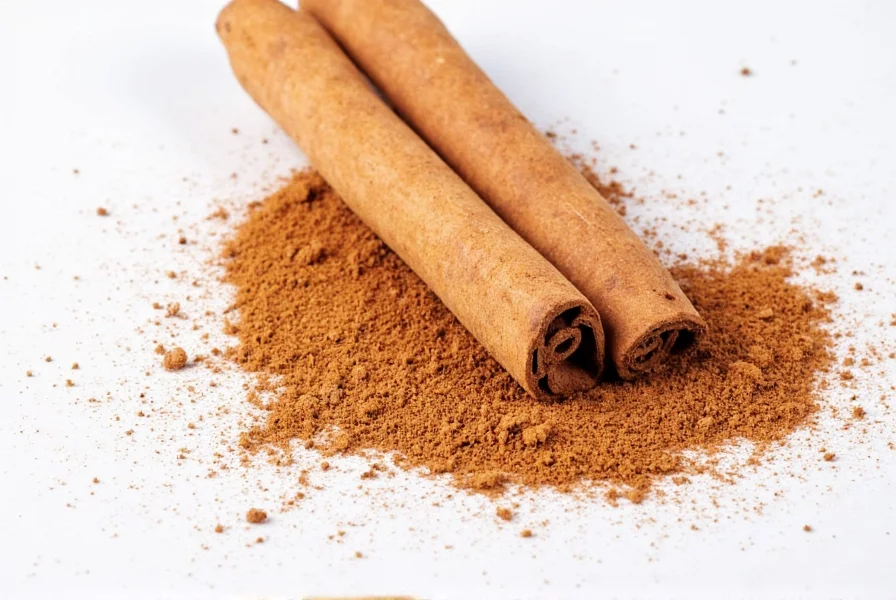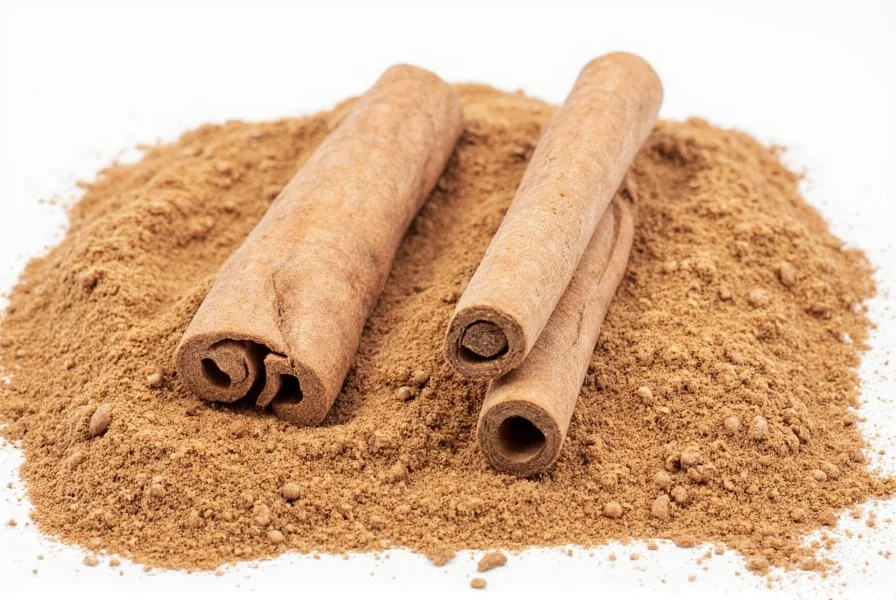Homeowners seeking natural pest control alternatives increasingly turn to ground cinnamon for ant problems. Unlike chemical pesticides, cinnamon offers a pet-safe, non-toxic approach that aligns with eco-friendly household practices. Understanding how this kitchen staple affects ant behavior helps optimize its use for maximum effectiveness.
The Science Behind Cinnamon's Ant-Repelling Properties
Ants rely on pheromone trails to navigate between food sources and their colonies. When worker ants discover food, they deposit chemical signals that guide others to the bounty. Ground cinnamon contains high concentrations of cinnamaldehyde, which masks these chemical trails through olfactory interference.
Research published in the Journal of Economic Entomology confirms that certain essential oils, including cinnamon oil, significantly disrupt ant trail-following behavior. While most studies focus on cinnamon oil, ground cinnamon powder still releases sufficient volatile compounds to create effective barriers.
How to Use Ground Cinnamon for Ant Control
For optimal results when using ground cinnamon against ants, follow these evidence-based application methods:
| Application Method | Best Locations | Reapplication Frequency |
|---|---|---|
| Dry powder barrier | Window sills, door thresholds, baseboards | Every 2-3 days or after cleaning |
| Cinnamon water spray | Ant trails, entry points, countertops | Daily until ant activity ceases |
| Strategic powder placement | Under appliances, behind cabinets | Weekly maintenance |
Creating Effective Cinnamon Barriers
Establishing proper cinnamon barriers requires attention to detail. Sprinkle a continuous line of ground cinnamon approximately 1/4 inch thick along potential entry points. The barrier must remain unbroken—any gaps allow ants to bypass the repellent. For enhanced effectiveness, combine cinnamon with other natural deterrents like black pepper or coffee grounds.
When preparing a cinnamon spray solution, mix 2 tablespoons of ground cinnamon with 1 cup of hot water. Let it steep for 24 hours, then strain and pour into a spray bottle. This concentrated solution releases more cinnamaldehyde than dry application alone, providing stronger repellent properties.
Effectiveness and Limitations
Ground cinnamon works best against common household ants like odorous house ants and pavement ants. Its effectiveness varies based on several factors:
- Ant species: Some ants show greater sensitivity to cinnamon's scent
- Barrier integrity: Must remain continuous and undisturbed
- Environmental conditions: Humidity and airflow affect scent persistence
- Colony size: Large infestations may require additional methods
Unlike chemical pesticides, cinnamon doesn't kill ants or destroy colonies—it merely redirects them. For severe infestations, consider combining cinnamon barriers with other natural methods like diatomaceous earth or consulting a pest control professional.
Safety Considerations for Natural Ant Control
One significant advantage of using ground cinnamon for ants is its safety profile. Unlike commercial pesticides, cinnamon poses minimal risk to:
- Pets: Non-toxic to dogs and cats in typical application amounts
- Children: Safe for households with young explorers
- Food areas: Approved for use near food preparation surfaces
However, avoid excessive inhalation of cinnamon powder, as it can irritate respiratory systems. Keep applications away from direct food contact areas, and never use cinnamon as the sole solution for serious infestations that might indicate structural problems.
Alternative Natural Ant Repellents
When ground cinnamon alone doesn't provide sufficient control, consider these complementary natural solutions:
- Vinegar solutions: Disrupts pheromone trails with acetic acid
- Lemon juice: Citric acid creates effective barriers
- Coffee grounds: Strong scent deters ants while providing nitrogen
- Diatomaceous earth: Physically disrupts insects' exoskeletons
For persistent problems, combine multiple natural methods. Create layered defenses by using cinnamon barriers at entry points while treating active trails with vinegar solutions. This multi-pronged approach addresses both prevention and active infestation.
When to Seek Professional Help
Natural remedies like ground cinnamon work well for minor ant problems. However, certain situations warrant professional intervention:
- Ants nesting inside walls or structural elements
- Persistent infestations lasting more than two weeks
- Presence of carpenter ants or other destructive species
- Ants near electrical wiring or plumbing
Professional pest controllers can identify colony locations and implement targeted treatments while preserving the benefits of natural methods in sensitive areas.

Maximizing Natural Ant Control Success
For homeowners committed to chemical-free pest management, combining ground cinnamon with good sanitation practices yields the best results. Eliminate food sources by storing provisions in airtight containers, wiping surfaces regularly, and addressing moisture issues that attract ants.
Monitor treated areas daily to assess effectiveness. If ants establish new trails around cinnamon barriers, reinforce the application or try alternative natural repellents. Consistent application and barrier maintenance prove more effective than occasional treatments.

Conclusion
Ground cinnamon provides a safe, accessible solution for managing minor ant problems. Its effectiveness as a trail disruptor makes it particularly valuable for creating protective barriers around entry points. While not a complete solution for severe infestations, cinnamon forms an important component of an integrated, eco-friendly pest management strategy.
By understanding the science behind cinnamon's ant-repelling properties and applying it correctly, homeowners can reduce reliance on chemical pesticides while maintaining ant-free living spaces. This natural approach supports healthier indoor environments without compromising effectiveness for common household ant species.
Does ground cinnamon kill ants or just repel them?
Ground cinnamon only repels ants—it doesn't kill them. The strong scent disrupts their pheromone trails, making it difficult for ants to navigate, but it doesn't eliminate the colony. This natural repellent creates barriers that redirect ants away from treated areas without causing harm to the insects.
How long does cinnamon remain effective as an ant barrier?
Cinnamon barriers typically remain effective for 2-3 days before needing reapplication. Environmental factors like foot traffic, cleaning activities, humidity, and airflow can reduce effectiveness more quickly. For best results, inspect barriers daily and refresh them whenever the visible line becomes disturbed or less distinct.
Can I use cinnamon sticks instead of ground cinnamon for ant control?
Cinnamon sticks provide minimal ant-repelling benefits compared to ground cinnamon. The essential oils responsible for disrupting ant trails are more readily released from ground cinnamon's larger surface area. For effective barriers, use finely ground cinnamon powder which releases cinnamaldehyde more efficiently than whole sticks.
Which ant species are most affected by cinnamon barriers?
Common household ants like odorous house ants, pavement ants, and ghost ants show the strongest response to cinnamon barriers. Carpenter ants and fire ants may be less affected due to their different communication systems. Cinnamon works best against ants that rely heavily on pheromone trails for navigation, which includes most nuisance species found in homes.
Is ground cinnamon safe to use around pets and children?
Yes, ground cinnamon is generally safe to use around pets and children when applied as directed for ant control. Unlike chemical pesticides, it's non-toxic in typical application amounts. However, avoid excessive inhalation of cinnamon powder, as it can irritate respiratory systems. Keep applications away from direct food contact areas and monitor pets who might ingest large quantities.











 浙公网安备
33010002000092号
浙公网安备
33010002000092号 浙B2-20120091-4
浙B2-20120091-4